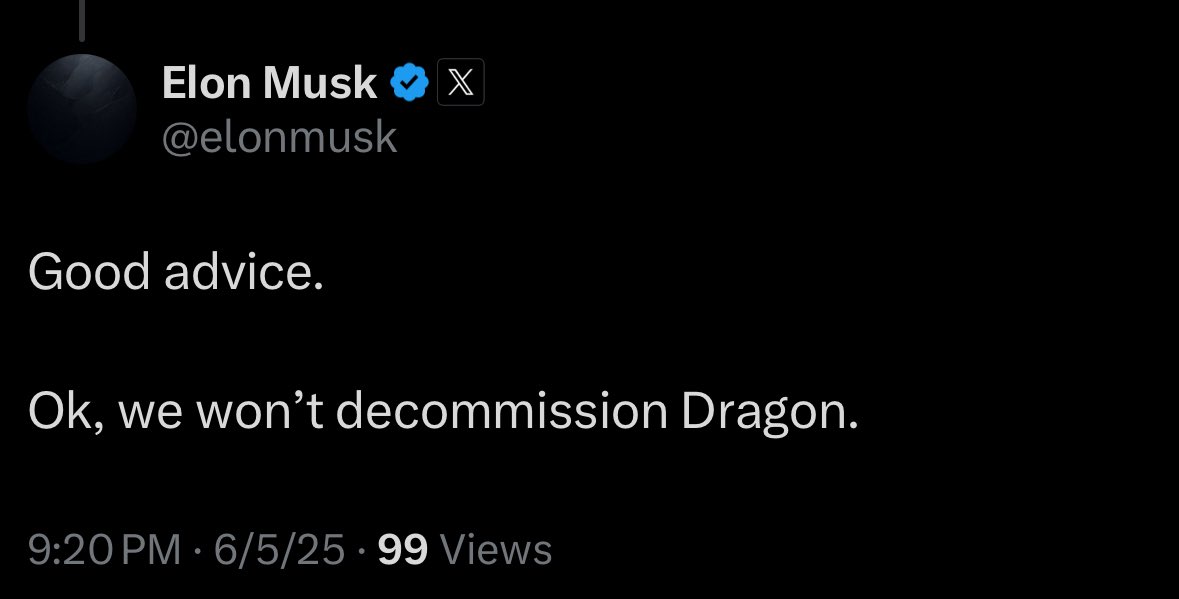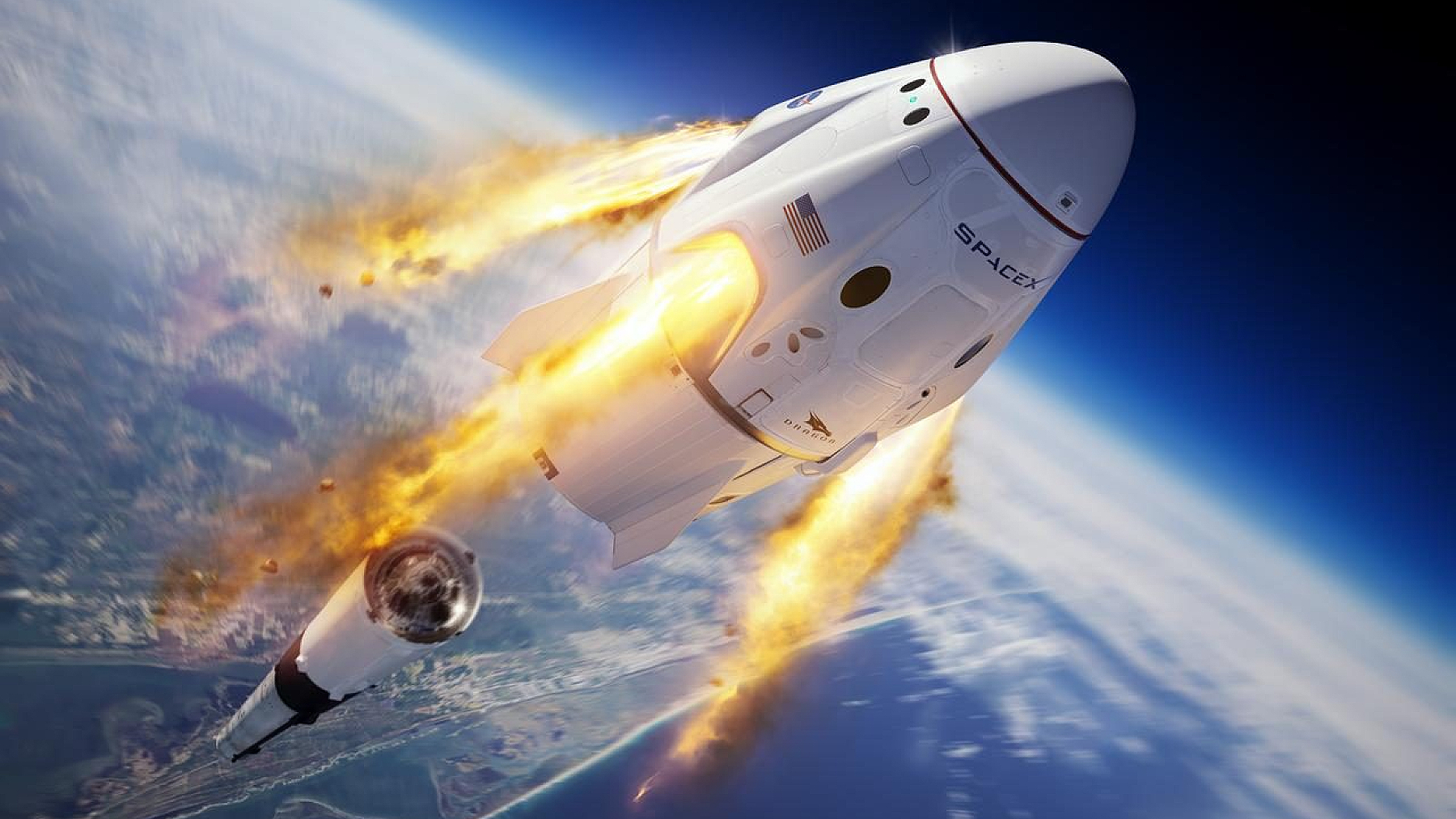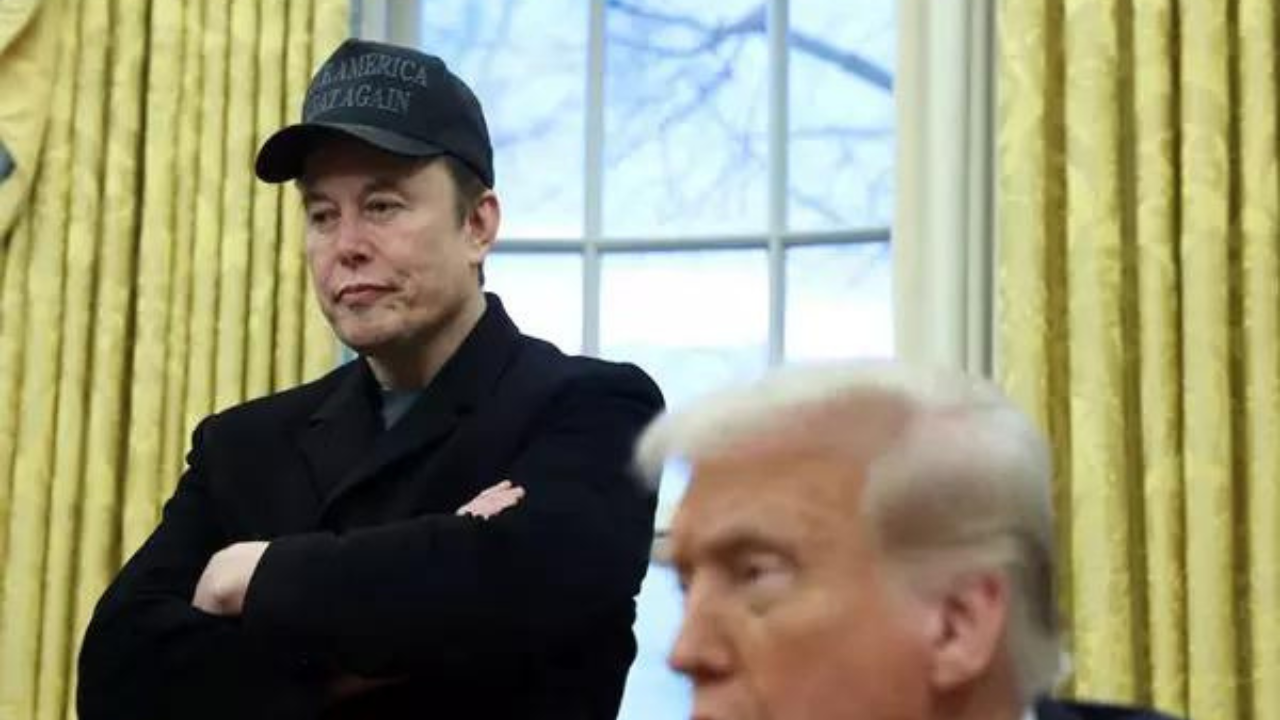In a stunning and unprecedented move, Elon Musk announced on Thursday that his company, SpaceX, would begin decommissioning its Dragon spacecraft "immediately" following President Donald Trump’s threats to cancel government contracts worth a staggering $22 billion. The announcement, which was made on Musk’s social media platform X, escalates a bitter feud between the two powerful figures and could have dire consequences for the U.S. space program, particularly for NASA and its international partners.
Musk’s decision comes amid a rapidly intensifying war of words that began after Musk criticized Trump’s massive tax-cut and spending bill, known as the "One Big Beautiful Bill Act." The legislation, which includes provisions to raise the federal debt ceiling by $4 trillion, had sparked immediate backlash from the Tesla CEO, who voiced concerns about the long-term fiscal implications.
In response, Trump fired back at Musk, accusing the billionaire of opposing the bill for personal reasons, including the removal of subsidies for electric vehicles.
This public clash soon escalated, culminating in Trump’s threats to revoke government contracts with Musk’s businesses, including SpaceX, one of the largest federal contractors in the U.S. SpaceX, which has received more than $20 billion in government contracts from NASA, the Air Force, and other agencies since 2008, is a critical partner for the U.S. government, particularly in its space exploration efforts.

In light of Trump’s threats, Musk did not hesitate to make his position clear. He took to X, saying, "In light of the President’s statement about cancellation of my government contracts, @SpaceX will begin decommissioning its Dragon spacecraft immediately."
The Dragon spacecraft, which has been instrumental in NASA’s human spaceflight missions, is the only U.S. spacecraft capable of delivering astronauts to and from the International Space Station (ISS).
Since its debut, Dragon has been an essential asset in the U.S. space program, transporting NASA astronauts to the ISS and returning them safely to Earth. Most recently, a Dragon capsule brought astronauts Butch Wilmore and Suni Williams back to Earth in March after they had been stranded at the ISS for months due to delays with Boeing’s Starliner capsule. Additionally, a Dragon spacecraft delivered over 6,700 pounds of essential cargo, crew supplies, and science equipment to the ISS on April 22.
In decommissioning the Dragon spacecraft, Musk has effectively signaled a crisis for NASA’s crewed missions. The Dragon capsule is not only capable of carrying astronauts but also of returning significant amounts of cargo to Earth, something no other spacecraft can currently achieve.
Musk’s decision puts NASA in a precarious position, forcing the agency to seek alternatives for transporting astronauts and critical supplies to the ISS.

The immediate decommissioning of SpaceX’s Dragon spacecraft could have serious repercussions for U.S. space ambitions. Dragon has been a cornerstone of NASA’s crewed spaceflight capabilities since 2020, when it became the first private spacecraft to transport humans to the ISS.
With Dragon out of service, NASA would be left with no immediate U.S.-based alternative for crew transportation, relying instead on Russia’s Soyuz spacecraft or other countries’ offerings, which would undoubtedly delay U.S. missions and impact the country’s standing in the global space race.
The loss of Dragon would be particularly damaging as NASA is pushing forward with ambitious plans to return humans to the Moon by 2024 as part of its Artemis program, as well as future missions to Mars. SpaceX’s collaboration with NASA has been crucial in advancing these efforts, and without the Dragon spacecraft, the U.S. would face significant setbacks in achieving its space exploration objectives.
Beyond NASA, SpaceX’s contracts with the Pentagon and other government agencies are at risk. SpaceX has been at the forefront of U.S. military space operations, including providing satellite launch services and contributing to national defense initiatives.
The cancellation of SpaceX’s contracts could jeopardize these efforts, potentially setting back U.S. military capabilities in space.
SpaceX’s relationship with NASA and the Pentagon has been unprecedented. Since its founding in 2002, SpaceX has emerged as a leader in commercial space exploration, providing affordable and reliable space transportation.
The company’s innovative approach to reusable rockets has revolutionized the space industry, drastically reducing launch costs and increasing access to space.
SpaceX’s role in U.S. space strategy cannot be overstated. In addition to transporting astronauts and cargo to the ISS, SpaceX has played a key role in the development of the Starship rocket, which is designed for deep-space missions, including potential manned missions to Mars.
The company has also been testing the Starship rocket with mixed results, most recently experiencing its third consecutive explosion during a May launch. Despite these setbacks, the development of Starship remains central to SpaceX’s future.
However, SpaceX’s ties to the Trump administration have been equally significant. In addition to receiving billions in government contracts, SpaceX has benefited from key favors that have supported its growth. Trump’s administration pushed for an overhaul of NASA’s lunar program, transforming it into a broader Mars-focused initiative.
Additionally, the Trump administration helped SpaceX secure contracts that were once exclusively reserved for traditional aerospace giants like Boeing and Lockheed Martin.
The sudden rupture in this relationship between Musk and Trump raises questions about the future of U.S. space policy. Musk, a longtime advocate of privatization and reduced government intervention, has found himself at odds with a president whose approach to government and industry has been unpredictable and at times authoritarian.
If Trump follows through on his threat to cancel SpaceX’s contracts, it could hinder U.S. space exploration and open the door for China, Russia, and other nations to take the lead in space development.

NASA, which has relied on SpaceX for the transportation of astronauts and cargo, responded cautiously to Musk’s announcement. NASA Press Secretary Bethany Stevens issued a tweet stating, "NASA will continue to execute upon the President’s vision for the future of space."
However, Stevens did not address the implications of Musk’s decision to decommission Dragon, nor did she comment on the potential disruption to ongoing NASA missions.
The lack of a clear response from NASA raises further concerns about the agency’s ability to move forward with its space goals in the event of SpaceX’s contract termination. While NASA has other options for space transportation, such as Russia’s Soyuz spacecraft, these alternatives come with their own set of challenges, including political tensions with Russia and the limited capacity of Soyuz flights.

The fate of SpaceX’s Dragon spacecraft—and by extension, U.S. space exploration—now hinges on the outcome of this volatile political standoff between Musk and Trump. If Musk follows through with his decommissioning plan, NASA will be left scrambling for alternatives, while SpaceX will have to navigate the uncertain future of its government contracts.
With $22 billion in government contracts at stake, the stakes have never been higher for both SpaceX and U.S. space policy. Musk’s move is not only a defiant response to Trump’s threats but also a warning that the future of space exploration could be shaped by political tensions as much as technological advancements.
As this unprecedented crisis unfolds, the world will be watching closely to see whether Musk’s gamble will pay off or whether the U.S. will face a significant setback in its space ambitions. The political fallout from this feud is far from over, and its implications could shape the future of the U.S. space program for years to come.



-1749483269-q80.webp)

-1749482120-q80.webp)